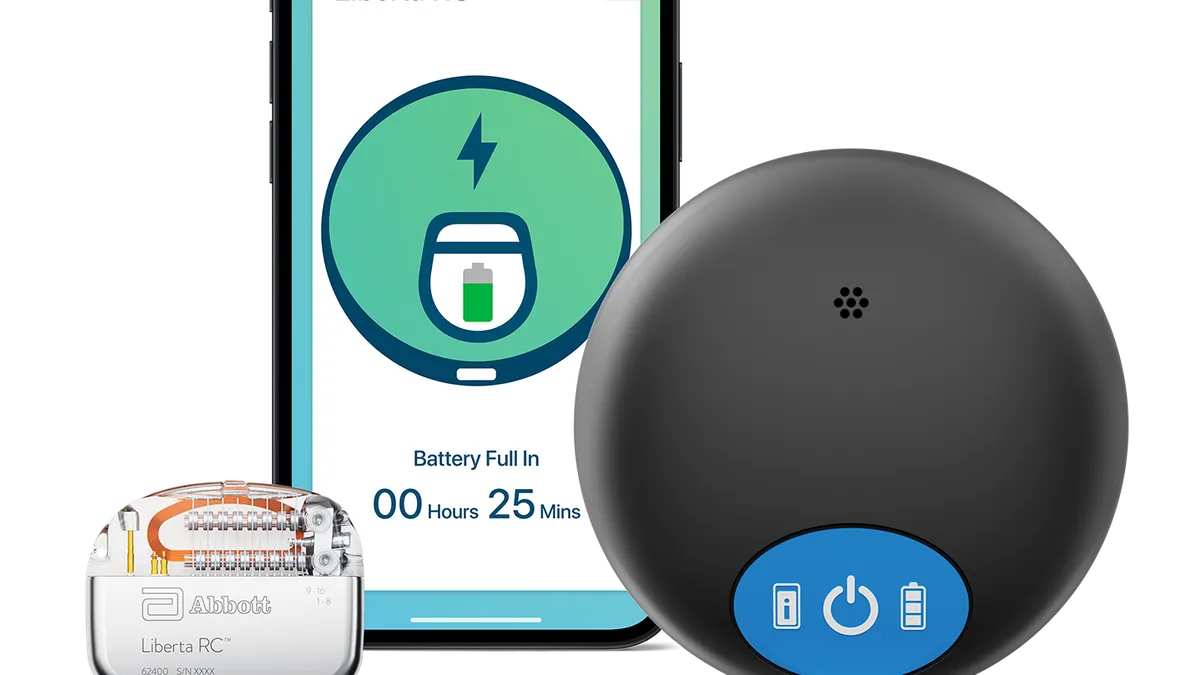Dive Brief:
- Abbott received approval from the Food and Drug Administration for a rechargeable deep brain stimulation (DBS) system.
- Abbott claimed in the Thursday announcement its device, called Liberta RC, is the world’s smallest and has the longest charge of any DBS technology on the market. The company says the device only needs to be recharged 10 times per year under standard settings for most users.
- Earlier this month, Medtronic also received approval for a new DBS system called Percept RC, which has sensing technology to track patients’ response to treatment.
Dive Insight:
DBS is used to treat movement conditions, such as Parkinson’s disease and essential tremor. A lead in the brain is connected to a neurostimulator, which sends electrical pulses to regulate the brain activity that causes these symptoms. The neurostimulator, which Abbott says is about the size of a smartwatch face, is placed under the skin near the chest.
A wireless charger is placed over the device to recharge it. Abbott also offers the device with its NeuroSphere virtual clinic technology that allows people to talk to a doctor and receive new treatment settings remotely.
"In developing the Liberta RC DBS system, our focus has been on the unique experiences of individuals with chronic conditions like movement disorders," Pedro Malha, vice president of neuromodulation at Abbott, said in a statement.
Last year, Abbott’s neuromodulation business brought in $890 million in sales, growing 15.5% compared to 2022. The company faces competition from Medtronic and Boston Scientific, which also offer DBS devices.
Earlier this month, Medtronic received FDA approval for a new rechargeable DBS system in its Percept family of devices. The device includes technology that captures and records brain signals to allow clinicians to personalize treatment to patients’ needs.
Medtronic said the battery in the device has at least 15 years of life and takes less than an hour to recharge from 10% to 90% full charge. Medtronic’s neuromodulation business brought in $1.69 billion in its fiscal year 2023, which ended in April, a decline of 2.4%.











